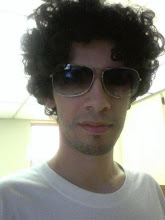It seems useful to address in this entry Gattone’s concluding assertion: social scientists have inherited a tradition that once believed in giving its savants “the responsibility of political leadership” in order to overcome the narrow rationale of local perspectives and “systematize the process of policy formation” (p. 125) on grand and even global scales. The goal – most clearly espoused by the Enlightenment spirit that produced personalities as diverse as Locke and Rousseau, Kant and Hegel, and even Marx, Einstein, and Freud – was to quell the masses’ potentially destructive power and to help build a social ferment that prolonged, rather than shortened, democratic participation and (underlying this) the optimum distribution of natural, cultural, and especially educational resources.
I personally struggle with such an inheritance, not because I question and think about my own approach to the issues and controversies of methodology (I would hope we all do, or at least have been), but rather because as a guiding star of political science’s identity and multiplicity, it seems so lofty a banner to wave. In today’s world of inextricable economic and personal interdependence, the unifying inheritance of the great social scientists (Weber, Mannheim, Mills, Bourdieu, etc.) seems to be less about preserving democratic civicness and more about retaining our ability to speak on its matters. Max Weber, who at the professional level inaugurates this trend, was certainly not the first to observe and investigate “the increasing rationalization of Western civilization and the strengthening of…state-centered capitalism” (p. 22), but he was a pioneer in emphasizing the insight that “the consequences of political actions often stray significantly from the original intentions of the actors involved” (p. 25), their paradox being the result of a human being’s (including Weber himself) inherent unpredictability and not the outcome of an insufficiently broad data-set or erroneously empathic interpretation (i.e., the paradox is not the result of using a quantitative or qualitative approach).
Like most any other human activity, Weber saw in the emergence of the social scientist an ideal path towards thought and action that we could only imperfectly (though at least stubbornly) aspire to. Though I disagree with his formulation of a separate ethic for those involved in politics and those involved in science – I am highly skeptical that such a division is sustainable, let alone even exists anymore – there is still much to learn from his analyses of how “the machine-like organization of politics [restricts] the autonomy of the individual and [interferes] with the potential for insightful decision making” (31), an insight that our sliver of the social world continues to proudly retain...
I find it curious (but appropriate) that Gattone's book asks us to remind ourselves how both the techniques and objectives of our research and investigations “are not based solely on utilitarian considerations” (p. 146), and that the ability of social scientists - and I would argue for all who have chosen the lonely academic path - to turn to the diversity of their disciplines to better understand ourselves is perhaps our greatest source of creativity, not just frustration. It is a sad fact of social reality that in the process of making our own path through the jungle of ideas, we will along the way step on the toes of both friend and so-called “foe” alike, particularly as we pursue funding, air-time, and even job security. Such a situation is not unique to academia, and can be found in industry, service, politics, and even the arts; the sadder realization, however, is that we (thinkers of social reality, particularly political scientists) are expected to know this and asked to continue to struggle against it…
 This last state of ambiguity - to be aware of our community-changing abilities, while simultaneously be caught in the broader mechanistic process of a consumerist society - reminds me of one final anecdote from the week. Addressing the work of Weber, a peer pointed out that his most renowned work, The Protestant Ethic and the Spirit of Capitalism (a book we will be reading in a few weeks), was in fact a representative example of the dangers of social scientists sticking their ideas into political environments. The question left on my mind was not whether Weber was evil, or worse, stupid; rather, I wonder what I would have done in his position...
This last state of ambiguity - to be aware of our community-changing abilities, while simultaneously be caught in the broader mechanistic process of a consumerist society - reminds me of one final anecdote from the week. Addressing the work of Weber, a peer pointed out that his most renowned work, The Protestant Ethic and the Spirit of Capitalism (a book we will be reading in a few weeks), was in fact a representative example of the dangers of social scientists sticking their ideas into political environments. The question left on my mind was not whether Weber was evil, or worse, stupid; rather, I wonder what I would have done in his position...
Fair comparison? Revisionist counter-factual?? Maybe, maybe not, but isn't that the business that we are in: testing our hypotheses and insights against the grain of history??

No comments:
Post a Comment